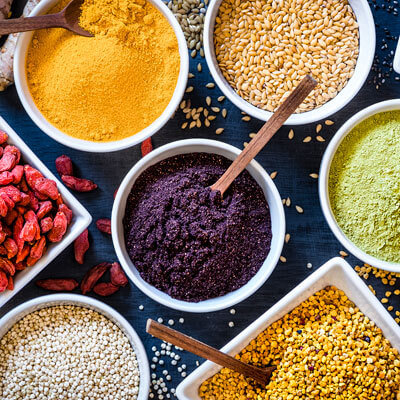Gluten Free Guide
What does it mean?
 If you have been advised to move to a gluten free diet it doesn’t necessarily mean that you have an allergy or a medical intolerance, it may simply mean that your body isn’t functioning optimally on gluten at this present point in time. This may change as your health improves over the course of your care with us.
If you have been advised to move to a gluten free diet it doesn’t necessarily mean that you have an allergy or a medical intolerance, it may simply mean that your body isn’t functioning optimally on gluten at this present point in time. This may change as your health improves over the course of your care with us.
Gluten is a protein composite that appears in foods processed from wheat and related species, including barley, rye and oats (unless the oats are specified as gluten free.)
Foods to avoid when eating Gluten Free:
Bread, pasta, cakes, biscuits and cereals containing wheat, barley or rye are the obvious things to avoid but gluten can be found in foods you wouldn’t expect such as sauces, seasonings and gravies.
Many processed foods contain additives and fillers that originally came from wheat. These gluten containing by-products of wheat might have names like malt, modified food starch, food starch, stabilizers, fat replacers or substitutes. When eating out it is common for gluten free options to be made available if the kitchen is informed.
Alternatives:
There are lots of gluten free alternatives available both in the supermarkets and food stores. Some alternatives include:
| Brown rice | Quinoa |
| Buckwheat (Groats or Flour) | Millet |
| Pasta made from corn or rice | Tapioca flour |
| Gluten free oats | Starchy and non-starchy |
| Amaranth | Vegetables |

